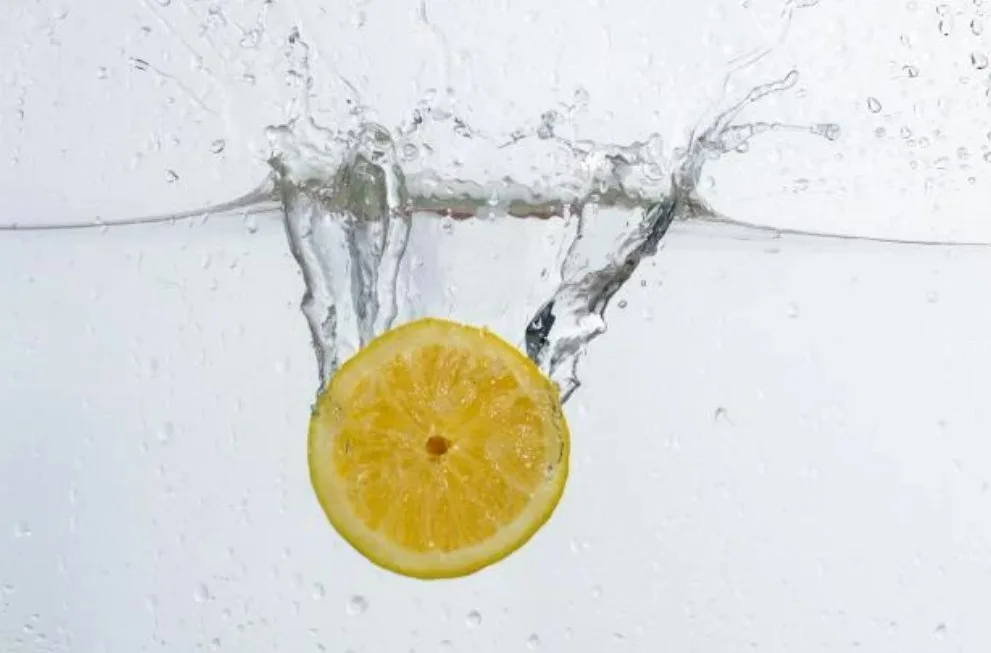Introduction
We often ponder over mysterious and incomprehensible recipes for preparing magical water. This time, our attention is drawn to lemon water.
Upon this query, Google yields numerous pages referencing women's magazines, alternative medicine centers, and more. Traditionally, there's a notable absence of any reference to traditional evidence-based medicine in the top fifty responses. We will try to get to the bottom of the truth, but first, let's look at what all these sites say about this magical water.
Is lemon water beneficial?
To understand the benefits of lemon water, let's begin with the chemical properties of the so-called lemon water. The most popular method of preparing this concoction involves steeping sliced lemon in two liters of water or squeezing juice, but there are many variations.
Depending on its size, one lemon contains 6-10 grams of citric acid. For calculations, let's use the average value - 8 grams. If this amount of citric acid is added to distilled water, the pH will be approximately 2.3, while in tap water, the pH will be higher, around 4. This hydrogen ion level defines an acidic environment.
The quality standards for drinking water prescribe a pH level within 6.5 - 8.5. For some medicinal waters, this figure is 4.5. It's important to note that medicinal waters are consumed under a doctor's recommendation for a specific, usually short period. If you're still drawn to mineral water with lemon, ensure you're in perfect health or consult a doctor before consuming it.
According to proponents of the lemon theory, water is capable of creating the right alkaline balance in the body. Fortunately, the human body is a fairly stable system, and disturbing its function is quite difficult, including through the consumption of lemon juice. The idea of acidifying gastric juice itself is flawed because water initially moves through the esophagus with a weakly alkaline pH and only then enters the stomach, where the low concentration of acid cannot create any changes.

Myth 1: Lemon Water is a Good Source of Vitamins and Minerals
Above, we discussed the main component of lemon, citric acid. Now let's look at the mineral and vitamin composition of such water.
Lemons do contain a lot of vitamin C, and vitamin P in the peel. The fruit also contains about 3.5% sugar, vitamins B1, B2, A, and various flavonoids.
To get your daily dose of vitamin C, you need to eat 2 whole lemons a day. It's worth noting that the nutrients are listed for lemons with peel. So, if you get only juice, and even from a lemon slice, the amount of nutrients will tend to zero.
Another popular myth is that hot water with lemon is rich in fiber and aids digestion.
Fiber is indeed present in lemons, as well as in other vegetables and fruits, but mainly in the fruit itself. When you juice or infuse water with lemon, you don't get the fiber.
Myth 2: Lemons Improve Metabolism
"Hot lemon water for overnight weight loss" is one of the most popular myths. Apparently, it is based on a number of publications, one of which studied the effect of polyphenols obtained from lemon zest on obesity in mice with a high-calorie diet. Indeed, mice that consumed these substances were less prone to obesity than their "lemon-less" neighbors.
But it's important to note that the extract represented 0.5% of the mice's daily diet, and the polyphenols themselves are less than 0.1% of the entire peel. To achieve the effect observed in mice, you would have to eat at least half a kilogram of lemons with the peel.
Myth 3: Lemons for Weight Loss
As for lemon water for weight loss, its positive effect lies only in the fact that if the stomach is filled with liquid, a person is unlikely to feel hungry for a short time.
Myth 4: Lemon Water Helps Prevent and Treat Cancer
We haven't found any studies related to lemons and cancer, so it's highly likely that oncological diseases and lemon water are not connected.
Myth 5: Lemon Water Lowers Blood Pressure
Clinical studies in which a group of patients consumed lemon juice did not show a correlation between drinking lemon water and blood pressure levels. It is quite possible that some effect is related to the mild diuretic effect of lemon juice.
It's worth noting that this issue is relevant not only for the Russian-speaking segment of Internet users.
Myth 6: Antioxidant Properties
The main antioxidants in the human body are the liver and kidneys. Lemon water is only loosely related to their function.
Truth: Lemon Juice and Lemon Water Can Be Used in the Treatment of Kidney Stones
Clinical studies show that lemon juice provides results similar to sodium citrate, which is commonly used to dissolve calcium deposits in the kidneys.
But even in such cases, it's not lemon-infused water that is used, but rather lemon juice in amounts exceeding 80 ml.
Harm of Lemon Water
To prevent damage to tooth enamel, it is recommended to drink lemon water through a straw. In a study comparing the effects of lemon juice with other beverages on tooth enamel, it was proven that they have practically the same impact on teeth. Initially, the gloss decreases, and the color of the tooth surface changes; in more severe cases, thorough erosions are observed.
Frequent heartburn, gastritis, and stomach ulcers are also contraindications for drinking lemon water, as they can provoke increased acidity and consequently worsen symptoms.
Since lemon is a strong allergen, frequent consumption may trigger allergic reactions, most commonly observed in the form of skin symptoms. It can also exacerbate chronic skin conditions.
Such water should also not be consumed during inflammatory processes in the genitourinary system, especially in the bladder.
In summary of the above, we can conclude that the extraordinary benefit of lemon water is another myth. It can be consumed, but it does not possess miraculous properties.
How to Make Lemon Water?
Let's look at how to drink lemon water and what you need for it.
Ingredients:
- Lemon
- 500 ml of water
- Ice (if desired)
- Honey or sugar (to taste)
Recipe:
- Slice the lemon into thin slices or wedges.
- Bring the water to a boil and pour it into a large bowl.
- Add the sliced lemon to the water.
- Let the drink infuse for 5-7 minutes to allow the lemon aroma and flavor to permeate the water.
- Optionally, add a few ice cubes to cool the drink.
- You can add honey or sugar to taste if you prefer a sweeter taste.
- Stir the drink with a spoon to dissolve the honey or sugar.
- Your refreshing lemon drink is ready to be enjoyed!
This drink not only refreshes but also infuses the water with a pleasant aroma. Enjoy the taste of this light beverage!
References:
- Yeliseyeva, Tetyana. "Lemon Water: Scientific Data on Benefits and Contraindications." Journal of Healthy Eating and Dietetics 4.18 (2021): 54-58.
- Ferrell, Bruce A. "Lemon water." Healthy Years 10.10 (2013): 8-9.
- Bio, David, Memory Maintenance Yoga Class, and Memory Maintenance Yoga Teacher Training. "Health Benefits of Lemon Water by David Webster and Aubree Kozie."
- Aras, B., Kalfazade, N., Tuğcu, V. et al. Can lemon juice be an alternative to potassium citrate in the treatment of urinary calcium stones in patients with hypocitraturia? A prospective randomized study. Urol Res 36, 313–317 (2008). https://doi.org/10.1007/s00240-008-0152-6
- SARI, Aysel, Nevzat SELİM, and Melda DİLEK. “Effect of Lemon Juice on Blood Pressure.” Journal of Experimental and Clinical Medicine 29.1 (2012): 38–41. Web.
Faqs
What will happen if you drink lemon water at night?
Drinking lemon water before bed can have both positive effects and some considerations to keep in mind:
- Warm lemon water can help relax the body and create a comfortable environment for falling asleep.
- Drinking water before bed is important for maintaining hydration levels in the body, especially if there has been a lack of fluids during the day.
However, it's worth considering the following:
- Lemon contains acid, and consuming it before bed may cause heartburn in some individuals. If you have a sensitive stomach, it's best to avoid large servings.
- The acidity can also affect the teeth. After consuming lemon water, it's recommended to rinse your mouth with water to reduce the impact of acid on the enamel.
Overall, drinking lemon water before bed is generally safe for most people, but individual reactions may vary. If you have any health concerns, it's always best to consult with a doctor.
What will happen if you drink lemon water every day?
Drinking lemon water daily can have several positive effects on the body:
- Water helps quench thirst, and adding lemon can make the water more palatable, encouraging the consumption of more fluids.
- Lemon contains vitamin C, which is an antioxidant and promotes healthy skin, immunity, and other bodily systems.
- The acidity of lemon may aid in stimulating digestion and enhancing the production of gastric juice.
However, it's important to remember that excess acidity can be harmful. It's always essential to be mindful of your own sensations and your body's reactions to changes in dietary habits.
How many times a day can you drink lemon water?
You can drink lemon water throughout the day. The recommended frequency of consumption depends on individual preferences and health. Excessive acidity from lemon may have a negative impact. It's important to listen to your body and adjust the amount of lemon water consumed based on your preferences and sensations.








